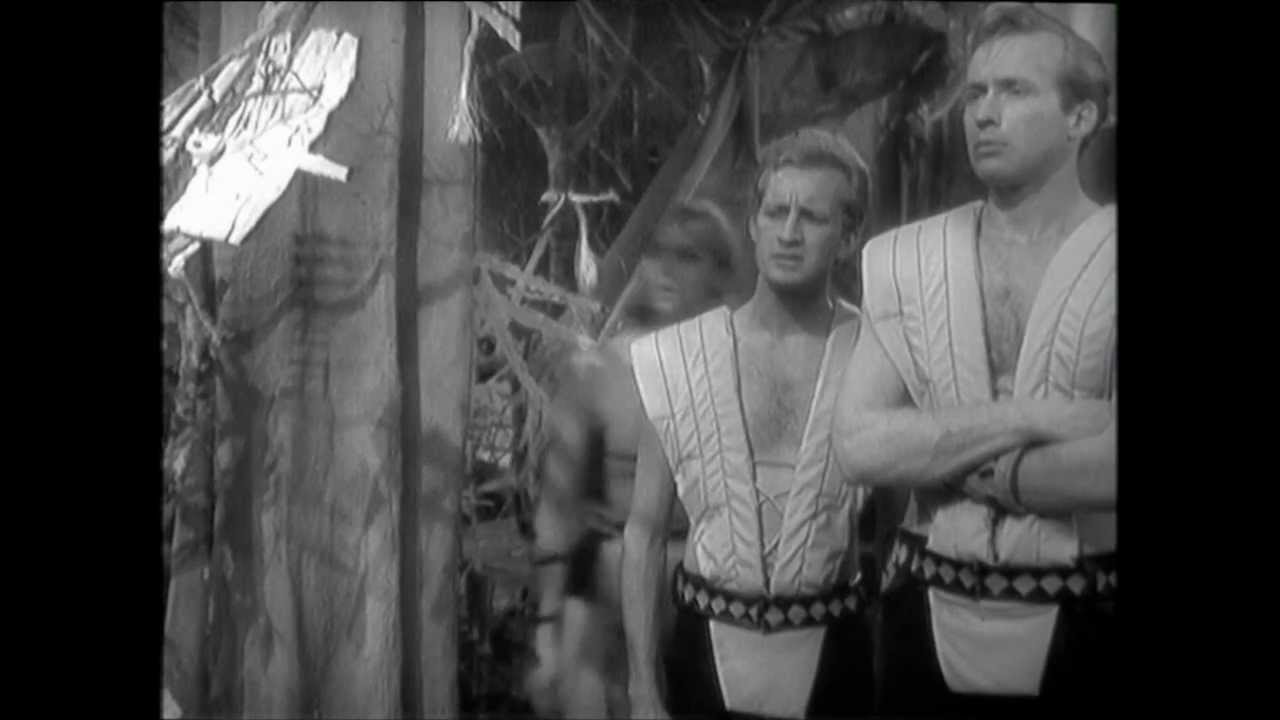It is possible that the syllable "Thal" is meant to be suggestive in this way. In fiction, presentation of Neanderthals often concentrated on the idea of them being savage enemies of our own ancestors. In "The Daleks", we hear first about the Thals being a threat - "disgustingly mutated" and a competitor species to the Daleks. The writer Terry Nation, the kind of person who would come up with "Skaro" as the name for a battle-scarred planet and "Aridius" for a desert one, was keen on using suggestive names as a writerly economy:
Our Victorian dramatists had a splendid system of immediate identification. For example, a Roger could not be anything but a clean limbed, bright-eyed, decent chap, whereas a Jasper had to be a moustache twirling whip cracking hound.
(Letter to John Wiles, September 1965, quoted in Terry Nation: The Man Who Invented the Daleks by Alwyn W. Turner, 2013)
The expectation is subverted when the Thals turn out to be attractive pacifists, which is another potential presentation of Neanderthals - the gentler species that we annihilated. The names of their characters are also classical-sounding, like "Alydon" and "Temmosus", which is hinting at their representing an enlightened civilization. This sort of suggestive naming is compelling for a TV serial that didn't want to have long expository scenes, and where there was no expectation that the Daleks would ever show up again. (Nation is also fond of short names with no apparent meaning, like "Tarron", "Bettan", "Yartek", probably for the same sort of reason.) To the extent that we could reconstruct Terry Nation's or David Whittaker's thinking on the subject, in the absence of anything definitive from them, it seems like this could be part of why the name was selected.
But I think "The Daleks" does not really commit to the Neanderthals as a parallel - there is not a thematic resonance beyond a possible use of the Thal name for dramatic purposes. The evolutionary connection between Daleks (or Dals, or Kaleds) and Thals was unclear, and became more muddled even in future work by Nation himself. At points in the drafting, there was yet a third species responsible for the planet-wide destruction, and the story does not define whether the Thals and Daleks ever had a common ancestor. And the basic asymmetry between them is different from the opposition between Neanderthals and Cro-Magnons (to use the terms of the time). It is more like the Eloi and Morlocks from H. G. Wells' The Time Machine, with the Thals/Eloi being attractive and peaceful, and the Daleks/Morlocks technologically advanced and aggressive. (See "The Evil of the Daleks" by Robin Bunce in Doctor Who and Philosophy: Bigger on the Inside, eds. Courtland Lewis and Paula Smithka, 2010.) There is a potential connection with the Daleks as Nazis - who were another perennial interest for Nation - since the Thals are ironically "Aryan" in appearance, and perhaps in line with Nazi imaginings of what their hypothesized past racial group was like. But that concept has nothing in particular to do with Neanderthals, and while the Daleks of "The Daleks" are menacing authoritarians, they aren't yet obsessed with racial purity. For them, the Thals are a military threat but their existence is not in itself an affront to Dalek sensibilities.
The few appearances of the Thals in other work, particularly by Nation, also avoid any further connection with Neanderthal people. He appears most interested in them at the height of their powers, as in the TV Century 21 comic "Genesis of Evil" (1965) which concentrated on them as a technological civilization before a nuclear apocalypse. The same dynamic is at play in "Genesis of the Daleks" on TV, where the Thals live in a domed city, and as a generic spacefaring civilization in "Planet of the Daleks". David Whittaker, the script editor who also contributed much of the storyline and concept for "The Daleks", treated the Thals in his novelization of the episode but also did not play up any Neanderthal connection: it's pretty much the same as what was on-screen, even though he changed many other parts of the story.


